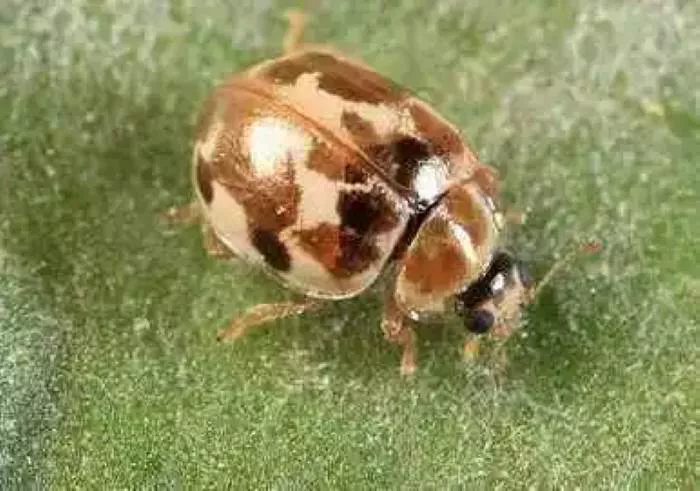Roses are among the most beloved flowers in gardens worldwide. Their beauty and fragrance make them a favorite for many gardeners. However, these stunning plants can be susceptible to various pests, including black bugs. These insects can cause significant damage to rose bushes, affecting their health and appearance. Understanding how to identify these pests, their impact on roses, and effective control methods is essential for maintaining healthy plants. This article will provide a comprehensive guide on how to get rid of black bugs on roses.
Identifying Black Bugs on Roses
Before taking action, it is crucial to identify the type of black bugs affecting your roses. Several common pests may appear as black insects on rose bushes. The most prevalent include:
Aphids: While many aphids are green, some species can appear black. These small, soft-bodied insects cluster on new growth and suck sap from the plant, leading to leaf curling and yellowing.
Black Thrips: These slender insects are usually less than a quarter of an inch long. They can cause discoloration and scarring on leaves and petals. Thrips can also transmit diseases to roses.
Black Beetles: Certain beetles, such as the black vine weevil, can also infest rose bushes. They feed on leaves, creating irregular holes and causing overall decline in plant health.
Spider Mites: Although not black, spider mites can appear darker when they are numerous. They create fine webs and cause stippling on leaves, leading to yellowing and leaf drop.
Fungus Gnats: These small flying insects are often mistaken for pests on the foliage. They are more of a problem in the soil but can be a nuisance when they fly around the plant.
Assessing the Damage
Once you identify the black bugs on your roses, assess the damage they have caused. Look for the following signs:
Leaf Discoloration: Yellowing or browning leaves can indicate pest activity.
Holes in Leaves: Missing sections of leaves or skeletonized foliage are signs of feeding.
Sticky Residue: A sticky substance on leaves, known as honeydew, is often produced by aphids and can lead to sooty mold.
Webbing: Fine webs on the leaves can indicate spider mite infestations.
Prevention Strategies
Preventing pest infestations is the most effective way to protect your roses. Here are some strategies to keep your plants healthy:
Healthy Soil: Start with well-draining, nutrient-rich soil. Healthy plants are more resilient to pests.
Proper Watering: Water your roses deeply but infrequently. Overwatering can weaken the plants and make them more susceptible to pests.
Regular Pruning: Remove dead or diseased wood and thin out crowded areas to improve air circulation. This practice can help reduce the likelihood of pests.
Companion Planting: Planting certain herbs and flowers alongside roses can deter pests. Marigolds and nasturtiums are known to repel aphids.
Regular Monitoring: Inspect your rose bushes frequently for early signs of pest activity. Catching infestations early makes control easier.
Control Methods
If you discover black bugs on your roses, it is essential to take action quickly. Here are several effective methods to control and eliminate these pests.
Manual Removal
For small infestations, manual removal can be effective. Use a strong stream of water to wash pests off the leaves. Handpicking larger pests, such as beetles, can also help reduce their numbers.
Insecticidal Soap
Insecticidal soap is a safe and effective treatment for many soft-bodied insects, including aphids and thrips. It works by suffocating the pests. To use insecticidal soap:
Spray the affected areas thoroughly, covering both the tops and undersides of leaves.
Repeat every 5 to 7 days until the infestation is under control.
Neem Oil
Neem oil is a natural pesticide that can control a wide range of pests, including aphids and thrips. It disrupts the life cycle of insects, making it effective against infestations. To use neem oil:
Mix according to the manufacturer’s instructions.
Spray on affected plants in the early morning or late afternoon to avoid leaf burn.
Horticultural Oil
Horticultural oils can also be effective against various pests. These oils work by suffocating insects and can be used on a wide range of plants. Apply horticultural oil in the same manner as insecticidal soap.
Chemical Insecticides
If natural methods do not control the infestation, you may need to resort to chemical insecticides. Choose a product specifically formulated for use on roses and follow the label instructions carefully. Be cautious with chemical treatments, as they can also harm beneficial insects.
Traps
For certain pests like beetles, traps can be effective. These traps attract and capture the insects, helping to reduce their populations. Place traps away from your rose bushes to lure pests away from the plants.
Encouraging Beneficial Insects
Encouraging beneficial insects can help keep pest populations in check. Ladybugs, lacewings, and parasitic wasps are natural predators of common rose pests. To attract these beneficial insects, consider the following:
Diverse Plantings: Plant a variety of flowers and herbs that provide nectar and pollen.
Avoid Broad-Spectrum Pesticides: These can kill beneficial insects along with pests, disrupting the natural balance.
Conclusion
Dealing with black bugs on roses can be challenging, but with proper identification and management techniques, you can protect your plants. By understanding the types of pests that commonly infest roses and implementing effective control measures, you can maintain the health and beauty of your rose bushes. Regular monitoring, preventive practices, and the use of natural and chemical treatments will help ensure that your roses thrive despite the challenges posed by pests. With the right care, your roses can continue to flourish and bring joy to your garden.


